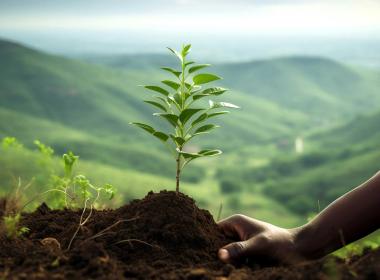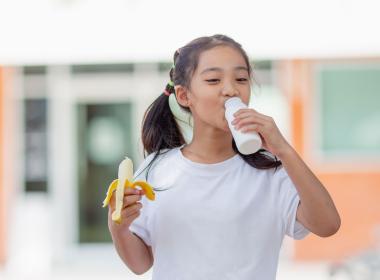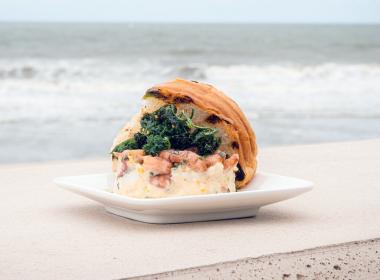
For over 60 years now, plastics have been omnipresent in our society. They went from revolutionary material that can do almost anything, to the equivalent of your favourite uncle. The one who always tells the same old jokes at the end of each dinner party. Used to be funny, and you still love him of course but……. Well…
Still, you could hardly imagine today’s society without plastics. And why should you?
Plastics, after all, are dirt cheap and easy to make. They are light and transport easily, and they are strong and flexible so you can find them virtually everywhere.
Including roadsides and oceans, unfortunately. And that’s where their strong point becomes a weakness, because once they end up somewhere, they tend to stay there. For much longer than the 60 odd years they have existed up to now.
And…presto: the plastic problem in a nutshell. They are so durable (meaning: they last) that they are not durable at all (meaning: they have a negative impact on our environment.)
(photo: all-plastic interior, Sormani Italia)

So what’s next?
We have a mountain of plastic waste that is growing larger by the day, and at the same time a degree of recycling that is dramatically low in many countries. Time to take drastic measures then, and one of those is the European Commission’s Single Use Plastics Ban.
A wide range of measures has to ensure the amount of plastic in nature decreases dramatically. This calls for more awareness and for newer and better product materials. But many items will be banned outright. Things you normally only use once. Cutlery, plates, straws, stirrers, cotton swabs and styrofoam food packaging will become unavailable as from the summer of 2021.
That means industries such as ours are also looking for alternatives. Fortunately, we didn’t wait for the Commission to announce its ban and we already have a SUP Guide (Single Use Plastics) where you can find all the do’s and don’ts for a SUP-free future. And we also have a complete and comprehensive catalogue of replacement products. And those are coming your way soon, because Compass also decided to do away with SUP’s as from 1st April already. From then on, we’ll use up the fractional stocks we have to make sure we are completely SUP-free by July 2021.
Still, at least my spoon is recyclable?
Yes it is…. But it isn’t, not even when your spoon is made from bioplastics.
Bioplastics are plastics made from biological sources, corn, for instance. But although they are usually labelled as biodegradable or compostable, they can’t be processed in Belgian (or most European, for that matter) processing plants. They degrade barely faster than conventional plastics and, in practice, are filtered out and burned along with all other residual waste. So that’s not really the answer.
And it shows why it makes perfect sense for the bioplastics to be included in the European ban.
OK. Cardboard it is, then!
Cardboard cups and salad bowls are immensely popular today. But what many people don’t realise: to keep moisture and fats in the cup or bowl, they are coated with a very thin layer of plastic. And while both the cardboard and the plastic layer are recyclable, their combination makes it very difficult to do so in practice. Oh, and if you spilled any fat, sauce, food on the cardboard, it’s considered contaminated and can’t be recycled.
So sugarcane bowls and wood cutlery, then! That’s actually a pretty good option, but also one that’s hardly recyclable, unfortunately. And think about the road that little wooden spoon or stirrer has travelled just to be used for 3 seconds, then wind up in a bin and be burned in the end.
Let’s bin our disposable mindset!
To be honest, disposable plastics are but one side of the issue. The other is our disposables mindset. If we keep using these kinds of materials, there will always be an ever greater impact on our environment, whatever the exact material you’re using.
Sometimes you really can’t do without them, and the solution there is to recycle and ‘close’ the waste flow. Often, they’re not really indispensable but just handy.
If you read between the lines of the Single Use Plastics Ban, you’ll find one big plea for reusable materials. The more times a material is used, the lesser the impact on our environment. And that is certainly true for our reusable food- and drink containers.
Anyway, it’s worth the time and effort to consider what we could do today to transit to reusable packaging, cutlery, and so on. That way, we are one step closer to becoming the consumer of the future.
by Seppe Eloot
Compass Group Belgium Sustainability Manager
What can you do today?
To help our customers and our operational people, Compass Group has developed a range of materials to create awareness and help stimulate better choices.
The posters shown above are just one item. We have also created a comprehensive Single Use Plastics guide which shows the disposables we should avoid and also the best alternatives.
To help make that change happen, we’ve also developed an in-house catalogue with a full range of acceptable alternatives and we have partnered with suppliers such as Mepal to provide a set of reusable cups, bottles and containers.
Want to know more? Contact your Compass Operational or Account Manager today and they will be more than happy to show you what is possible.

SMART EAT / EATING SMARTER
Do you want to know how eating makes you smarter, or just how to eat smarter?
We can help you master the essentials.








